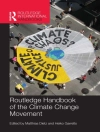’These editors have the respect, visibility, and track-record to make this volume a contribution to the field of Internet studies. It will be adopted as an upper-division text and can also serve as a valuable reference work for doctoral students. Given its broad mix of qualitative and quantitative approaches, this work should have wide appeal across the Social Sciences and Information Studies.’
— Sandra J. Ball-Rokeach,
Annenberg School for Communication, University of Southern
California
Within the developed world, much of society experiences political, economic, and cultural life through a set of communication technologies barely older than many citizens.
Society Online: The Internet in Context examines how new media technologies have not simply diffused across society, but how they have rapidly and deeply become embedded in our organizations and institutions.
Society Online is not exclusively devoted to a particular technology, or specifically the Internet, but to a range of technologies and technological possibilities labeled ’new media.’ Rather than trying to cover every possible topic relating to new communication technologies, this unique text is organized by how these new technologies mediate the community, political, economic, personal, and global spheres of our social lives. Editors Philip N. Howard and Steve Jones explore the multiple research methods that are required to understand the embeddedness of new media.
Society Online discusses the findings of the Pew Internet and American Life Project and is the first book to bring together leading social scientists to provide the most comprehensive and far-reaching Internet research data sets and to contextualize Internet use in modern life. The book features contributions by leading scholars from across the social sciences using a range of research techniques including systematic content analysis; comparative methods; quasi-experimental methods; probit; ordinary least squares and logistic regression analysis; small focus groups; historical, archival, and survey methods; ethnographic and auto-ethnographic work; and comparative analyses of policy traditions to probe, analyze, and understand the Internet in the context of everyday life.
Society Online is designed for undergraduate and graduate students taking media studies courses in the areas of Communication, Sociology, Political Science, Anthropology, Cultural Studies, Information Sciences, and American Studies.
For more information about
Society Online, please visit www.societyonline.net.
Innehållsförteckning
Acknowledgements
Foreword – Howard ’Lee’ Rainie
Prologue. The Case for Multi-Method Research: Large Sample Design & The Study of Life Online – James Witte
Chapter 1: Introduction. Embedded Media: Who We Know, What We Know, and Society Online – Philip N. Howard and Steve Jones
PART I. SOCIAL CAPITAL, COMMUNITY, AND CONTENT
Chapter 2: The Bridging and Bonding Role of Online Communities – Pippa Norris
Chapter 3: Deeper Understanding, Deeper Ties: Taking Faith Online – Elena Larsen
Chapter 4: Bending Gender into the Net: Feminizing Content, Corporate Interests, and Research Strategy – Leslie Regan Shade
Chapter 5: Interrogating the Digital Divide: The Political Economy of Race and Commerce in New Media – Lisa Nakamura
PART II. WIRED NEWS AND POLITICS ONLINE
Chapter 6: Will Internet Voting Increase Turnout? An Analysis of Voter Preference – Jennifer Stromer-Galley
Chapter 7: The Internet and Political Involvement in 1996 and 2000 – Ronald E. Rice and James E. Katz
Chapter 8: New Media, Internet News, and the News Habit – Carin Dessauer
Chapter 9: Crisis Communication and New Media: The Web After September 11 – Steven M. Schneider and Kirsten A. Foot
PART III. ECONOMICE LIFE ONLINE
Chapter 10: ′s Ho P on Li NE!′: Advertising Female Teen Cyberculture – David Silver and Philip Garland
Chapter 11: Permanently Beta: Responsive Organization in the Internet Era – Gina Neff and David Stark
Chapter 12: Art Versus Code: The Gendered Evolution of Web Design Skills – Nalini P. Kotamraju
PART IV. CULTURE AND SOCIALIZATION ONLINE
Chapter 13: Wired and Well-Read – Wendy Griswold and Nathan Wright
Chapter 14: The Disembodied Muse: Music in the Internet Age – Richard A. Peterson and John Ryan
Chapter 15: Technology & Tolerance: Public Opinion Differences Among Internet Users and Nonusers – John P. Robinson, Alan Neustadtl, and Meyer Kestnbaum
PART V. PERSONAL AND GLOBAL CONTEXTS OF LIFE ONLINE
Chapter 16: Informed Web Surfing: The Social Context of User Sophistication – Eszter Hargittai
Chapter 17: U.S. American Internet Users and Privacy: A Safe Harbor of Their Own? – Doreen Starke-Meyerring, Dan L. Burk, and Laura J. Gurak
Chapter 18: Sited Materials with a Global Span – Saskia Sassen
Chapter 19: The Future of Internet: Cultural and Individual Conceptions – William Sims Bainbridge
Chapter 20: Conclusion: Contexting the Network – Steve Jones
Om författaren
Steve Jones is UIC Distinguished Professor of Communication and Adjunct Professor of Computer Science at the University of Illinois Chicago, USA and Adjunct Research Professor in the Institute for Communications Research at the University of Illinois Urbana-Champaign, USA. He is editor of New Media & Society and co-editor of Mobile Media & Communication. His research interests encompass popular music studies, music technology, sound studies, internet studies, media history, virtual reality, human-machine communication, social robotics and human augmentics. His research has been funded by the National Science Foundation, National Institutes of Health, National Cancer Institute, Centers for Disease Control and the Tides Foundation.












